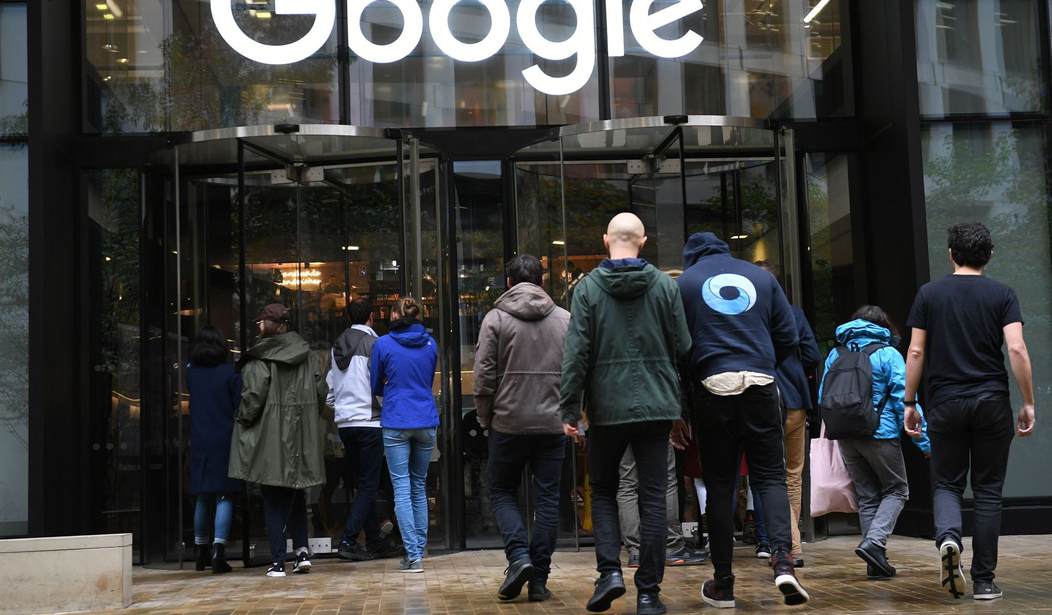A hearing begins today on Capitol Hill, led by Rhode Island Democrat David Cicilline who chairs the House Judiciary antitrust subcommittee, to examine the effect Google, Amazon, Apple, and Facebook have on the news industry following an explosive study indicating Google made $4.7 billion off the news in 2018.
Discussion at the hearing will include proposed legislation called the Journalism Competition and Preservation Act, that would “give news publishers a four-year antitrust exemption, allowing them to collectively bargain with the owners of online platforms over revenue splitting,” reports the New York Times.
However, some experts believe the hearing and the news articles promoting it and slamming big technology companies are timed perfectly to frame the hearing discussion and make the case that the news industry deserves a cut of tech’s profits. The hearing and the near-propaganda supporting its subject matter in the same news outlets who support the legislation, these experts say, is simply a way for “big media” to make up for the fact they dropped the ball 25 years ago in refusing to innovate and work alongside tech giants as those companies entered the news market. The traditional news industry is now seeking a way to unfairly take some of tech’s fairly earned profits, they say.
“It’s just grift is what it is,” says Dan Gainor, vice president for TechWatch, business and culture at the Media Research Center (MRC).
Gainor acknowledges that a probe into potential big tech antitrust violations — today’s hearing supplements similar antitrust probes out of the Department of Justice and the Federal Trade Commission — isn’t altogether inappropriate (“They are big beyond the ability of ordinary citizens to dig into how they do their business,” he says). But he has little sympathy for huge media interests trying to carve out an exemption for themselves and skim off profits tech has managed to generate without their help.
Recommended
What’s more, he says, the New York Times and others are using the pages of their own news outlets to lobby for their own special interests.
“The New York Times did two hit pieces on Alphabet (Google’s parent company) in the last week,” Gainor says. “They are simply asking for cash from the tech industry and also setting tech up to be beaten up on the floor of Congress, all while they request a carve out for themselves.”
Gainor, who says he remembers being a journalist when tech entered the scene and how it was nearly impossible to convince traditional journalistic outlets to adapt while tech was innovating the industry, says it’s unseemly that now these traditional outlets are trying to take a cut of what their competitors made for doing their job and distributing the news better.
“They want Google and the others to thank them for creating the news, but there’s a flip side,” Gainor says. “They should be thanking Google for sending clicks their way. They say that Google and the other tech companies are costing them, but they’re not. [Traditional journalism] doesn’t have an automatic right to a consumers attention. Google has done it better.”
When asked about one news executive calling tech’s impact “devastating," Gainor says, “That’s like saying the auto industry was devastating to the buggy whip industry. It was. So what? Technology changed and your industry didn’t adapt.”
Tech Attorney Jamil Jaffer, Founder & Executive Director of the National Security Institute at George Mason’s Antonin Scalia School of Law, disagrees with Gainor on the merits of an antitrust examination, but he does agree that the news industry deserves little sympathy as they try to play catch up.
Jaffer believes antitrust law should be used to promote innovation, not target companies simply for getting too big. He says it would be a mistake to target big companies who are not, to his mind, credibly misusing market power to stifle competition and argues conservatives, in particular, should be “very cautious in immediately jumping to the idea we must use regulation and government power” on large companies just because of their size.
“We’re not seeing unfair market practices, the tearing down of competitors, keeping other companies from advertising,” Jaffer says. “If anything, they’re engendering innovation by fostering it and then buying it. They’re helping people gain ground.”
However, Jamil agrees with Gainor that the news industry is complaining about something they've created themselves.
“These tech companies innovated and are better at collecting and distributing the news,” he says. “Be better if you want to succeed.”
“The press is lobbying for special treatment and they’re using the pages of their own newspapers to do it,” says Gainor. “The worst part is they’d take any money they might get and will go right back to writing biased news slamming their conservative ideological competitors.”
Sarah Lee is a freelance writer and policy wonk living and working in Washington, DC.

























Join the conversation as a VIP Member